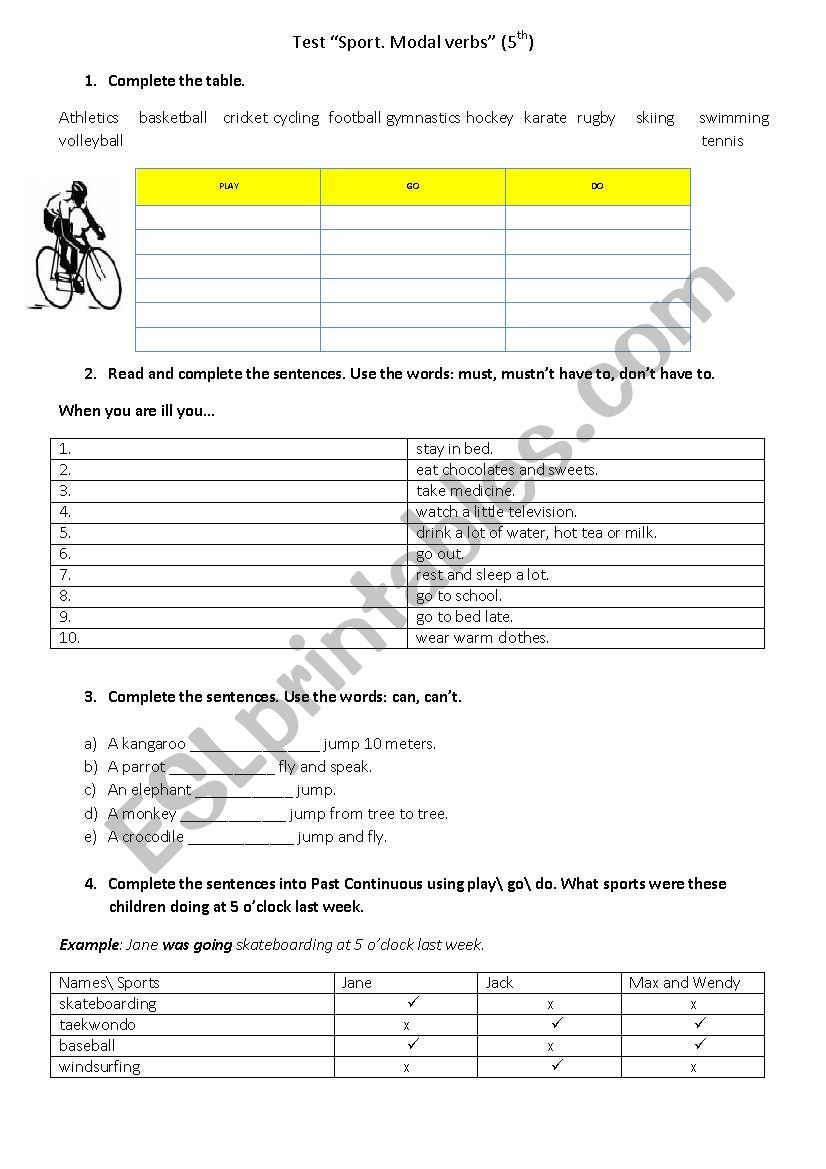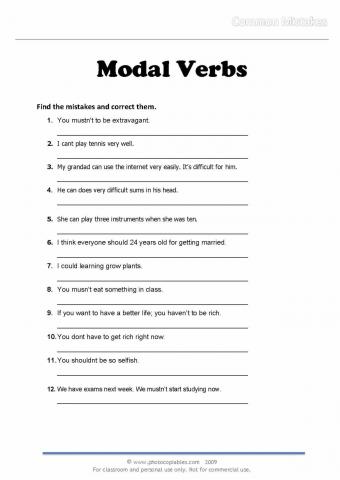

Although it’s used in all tenses, in present simple can is more commonly used. Will + subject + be + able to + infinitive ?īe able to has the same uses as canand could.įor physicalor mental abilities and to express the possibility to perform an action. In this exercise you will practise using modal verbs to express past probability: must have, cant have. Subject + won't + be + able to + infinitive English grammar practice exercise, intermediate level. Subject + will + be + able to + infinitive Have / Has + subject + been + able to + infinitive ?

Subject + haven't / hasn't + been + able to + infinitive In the present and simple past tenses, the modal verb is conjugated and the other verb appears at. Subject + have / has + been + able to + infinitive Modal verbs are usually used in combination with another verb. Was / Were + subject + able to + infinitive ? Subject + wasn't / weren't + able to + infinitive Subject + am not / isn't / aren't + able to + infinitiveĪm / is / are + subject + able to + infinitive ? ‘ used to’ (consult ‘used to’ for the usage in detail).Subject + am / is / are + able to + infinitive.Show example Do you need help Modals in English Grammar I do my homework yesterday evening. 1807 Fill in the correct substitute form for the modal in brackets into the gaps. ‘may’ can also become ‘ might’ for grammatical reasons (see the difference ‘may/might’). Modals and their substitute forms in the Simple Past and the will-future Exercise Task No.“She said she might move to Australia.” Practise past modals (modal +have + past participle) in various online exercises.‘may’ has the substitute form ‘ was/were allowed to’ or the actual past ‘ might’:.“She received an emergency call and had got to go early.”.‘must’ can form the past simple only with the alternative form ‘ had to’ or ‘ had got to’:.See ‘can’ and ‘be able to’ to learn the details. There is a slight difference in meaning between both forms.“I was able to get in without a ticket.”.“He could easily win every race when he was young.”.‘can’ has ‘ could’ in the past simple and the substitute form ‘ was/were able to’ examples:.Consider the particularities, which some modals offer: Could have should have would have Make the correct past modal form (use could have / would have / should have + past participle) See all the modal verbs exercises here. The following example sentences show the use of the modal verbs in the past (simple). Perfect English Grammar Review how to use these past modal verbs here. Examples and particularities of the modal verbs ‘can, ought to, must, used to, may’ in the past simple


 0 kommentar(er)
0 kommentar(er)
